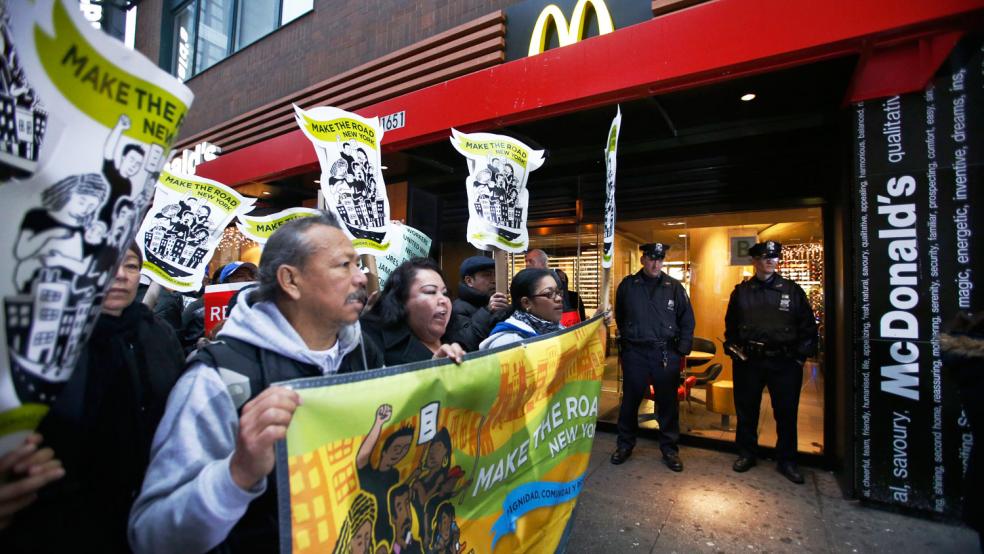When the Congressional Budget Office, earlier this year, released a report finding that the Obama administration’s proposal to raise the federal minimum wage to $10.10 an hour would cost jobs, the White House was furious.
The CBO, said members of the president’s Council of Economic Advisers, were relying too much on older research on the subject, and not enough on the most recent findings.
Related: Strong Jobs Report Masks Woes of Long-Term Unemployed
In an angry blog post, CEA Chair Jason Furman and economist Betsey Stevenson wrote, “Seven Nobel Prize winners and more than 600 other economists recently stated that: 'In recent years there have been important developments in the academic literature on the effect of increases in the minimum wage on employment, with the weight of evidence now showing that increases in the minimum wage have had little or no negative effect on the employment of minimum-wage workers, even during times of weakness in the labor market.'”
The CBO defended its numbers, and to many, the CEA response looked like a knee-jerk reaction – members of the president’s administration defending a preferred policy move in the face of evidence that it might not have the real-world effects the president had promised.
However, it turns out, the administration might have had a point.
Beginning in January of this year, 13 states individually increased their own minimum wages, creating a sort of natural experiment in which the remaining states could serve as a control group. All that was left was for someone to do the math, and the Center for Economic and Policy Research, building on research conducted earlier in the year by Goldman Sachs, delivered that in a report last week.
Related: The Truth About Minimum Wage Workers’ Take-Home Pay
Of the 13 states that raised their minimum wages, all but one saw job growth in the first five months of 2014. To be sure, that’s a small achievement in an environment where the national economy is adding something on the order of 250,000 jobs per month.
The really interesting finding is that the states that raised the minimum wage saw job growth that was, on average, higher than states that did not. The 37 states that did not raise the minimum wage at the beginning of this year saw employment increase by .68 percent. Those that did raise the wage saw employment increase by .99 percent.
Four of the top ten states in terms of employment performance were states that raised the wage, including Washington, Oregon, Colorado, and Florida.
The biggest outlier was New Jersey, which was not only the worst performing of the states that raised the wage, but the worst performing state altogether, with a net decline in employment of .56 percent.
Related: Minimum Wage Hike Comes with Costs
The takeaway number from the CEPR report, however, is that evidence appears to be accumulating to suggest that the CBO’s take on the impact of the wage was overly pessimistic.
“While this kind of simple exercise can't establish causality, it does provide evidence against theoretical negative employment effects of minimum-wage increases,” wrote CEPR’s Ben Wolcott.
Top Reads from The Fiscal Times:





